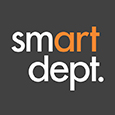From the collaborative desk of the Chicago and Seattle smarties
Almost anyone who is actively looking for a job, whether you’re a recent grad or have years of experience under your belt, know the basic “to dos” to prepare for your interview. Our team compiled some of their favorite tips that might not be top of mind for some job seekers.
Come with Questions – Amy Amato
Always come to your interview prepared with questions. If you have concerns about the role or the company up front, you should always ask about it. It will help you make a more informed decision if and when an offer comes through.
Double Check Your Resume – Leah Burkhardt
Ask someone else to proofread your resume to make sure it is free of spelling errors, grammar flaws and typos. Errors in your resume can be a red flag to employers and hinder your chances of obtaining an interview.
Networking – Leah Bye
To stand out in a crowd, it helps to have someone on the inside, whether it’s an old colleague, a recruiter, or your Dad’s college roommate. You never know what opportunities may open up from connecting with others and showing your interest. LinkedIn and Networking Groups are great places to start!
Cell vs. Land Line – Meghann Kern
If you’re doing a phone interview with a potential employer, always use a land line when possible, or make sure you find a cell-friendly zone where reception is good and there’s no background noise.
Attire for the Right Hire – Chessjuan Monk
Always dress for success! Start an interview off on the right foot by dressing appropriately. It’s okay to ask the interviewer in advance what the dress code is, but when in doubt, dress up, not down.
LinkIn is Your Friend – Alison Lepek
Be sure to create a detailed LinkedIn profile that includes specific information on your skill-set and software skills. Recruiters and potential employers will have a much easier time finding you and reaching out if you are searchable on LinkedIn. Include things like your job title and target job title, certifications, industry-specific software, education details, etc.
Resume and Portfolio Design – Beth Miller
As a designer, it’s great to show your skills on your resume/portfolio and come up with a unique design that expresses who YOU are, but make sure that it doesn’t distract from the content of your resume/portfolio and what you’ve actually done and can do.
